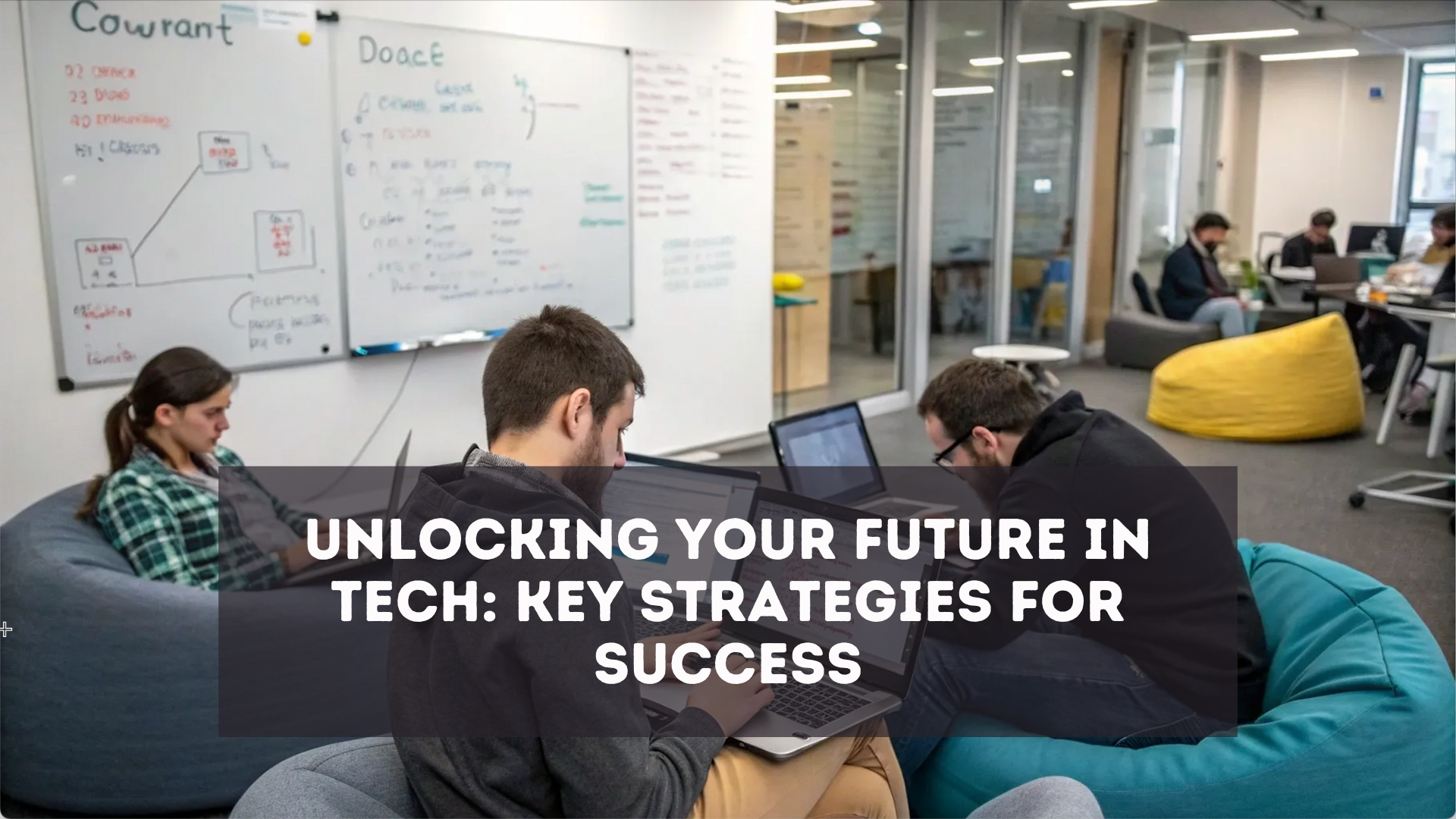Essential Strategies for Landing a Tech Job in 2025

Essential Strategies for Landing a Tech Job in 2025
The tech job market is constantly evolving, and understanding the critical factors that contribute to securing a job is essential for anyone looking to enter or transition within this field. As we now in 2025, it’s vital to focus on three essential elements that will enhance your chances of landing a tech position: the right skills, relevant experience, and making meaningful connections. In this blog post, we’ll explore each of these components in detail to help you prepare for the competitive job landscape ahead.
The Right Skills: Building a Strong Foundation
In the tech industry, possessing the right skills is non-negotiable. However, it’s not just about knowing everything; it’s about having the critical skills that are relevant to your desired position. Being a proficient problem solver is fundamental, as it showcases your ability to tackle real-world challenges effectively.
Moreover, having confidence in your abilities is equally important. You may have a plethora of skills, but if you cannot communicate them effectively during an interview, your chances of getting hired diminish significantly. Employers are looking for candidates who can demonstrate their capabilities right from the start. Therefore, take the time to understand the specific skills that are in demand in your desired field, and practice articulating your competence in those areas.
Gaining Experience: Learning by Doing
Experience often serves as a significant differentiator when applying for tech jobs. For individuals entering the job market, gaining relevant experience may seem daunting, especially if this is their first job. However, there are various ways to build your portfolio effectively.
Internships: Many educational programs, such as those offered by educational institutions, provide guaranteed internship opportunities. These internships allow you to work on real projects for actual clients, giving you hands-on experience that is invaluable.
Projects: Engage in personal or collaborative projects that allow you to apply your skills in a practical setting. This could involve developing software, conducting data analysis, or any other relevant tasks that demonstrate your technical abilities.
Volunteer Work: Consider offering your skills to non-profit organizations or community projects. This not only helps you gain experience but also allows you to make a positive impact.
It’s crucial to highlight your practical experience on your resume, as employers value candidates who can demonstrate their ability to contribute to business objectives. Focus on showcasing how you have utilized your skills to create tangible outcomes, whether through internships, personal projects, or volunteer work.
Connections: The Power of Networking
Connections are often the key to unlocking job opportunities in the tech industry. The concept of social engineering highlights the importance of relationships and social interactions in achieving career goals. When you have a connection within a company, it can significantly increase your chances of getting noticed.
Here are a few reasons why connections matter:
Social Engineering: Relationships can influence hiring decisions. If someone within the company advocates for you, it can make a significant difference in how your application is perceived.
Character References: Connections can serve as character references, vouching for your skills and work ethic. This adds credibility to your application, especially for entry-level positions where many candidates may have similar qualifications.
Accountability: When someone within the organization inquires about your resume, it prompts the hiring manager to give it more attention, increasing the likelihood that you will be considered for an interview.
To build connections effectively, focus on engaging with individuals in the industry without an obvious agenda. Ask questions about their experiences and seek advice on navigating your career path. This approach fosters genuine relationships and can lead to valuable opportunities down the line.
Strategies for Building Meaningful Connections
Building connections requires intentional effort and a strategic approach. Here are some tips to enhance your networking efforts:
Attend Events: Participate in local tech meetups, conferences, or seminars. These events provide excellent opportunities to meet industry professionals and expand your network.
Utilize LinkedIn: Connect with professionals on LinkedIn and engage with their content. Personalize your connection requests and express genuine interest in their work.
Follow Up: After meeting someone, send a follow-up message expressing your appreciation for the conversation. This helps reinforce the connection and keeps you on their radar.
Offer Value: Find ways to provide value to your connections, whether through sharing relevant articles, offering assistance, or simply being a supportive contact. Building reciprocal relationships can lead to more meaningful connections.
Conclusion: The Path to Success in the Tech Job Market
As we look ahead to 2025, the tech job market will continue to be competitive and dynamic. By focusing on developing the right skills, gaining relevant experience, and building meaningful connections, you can position yourself as a strong candidate in this evolving landscape. Remember, the journey to securing a tech job is not just about submitting applications; it’s about showcasing your value, making connections, and continuously learning and adapting.
Stay proactive, and don’t hesitate to seek support from mentors, peers, or educational programs that can help you navigate this path successfully. The combination of skills, experience, and connections will undoubtedly increase your chances of landing your dream tech job.
FAQs
What skills are essential for landing a tech job in 2025?
Essential skills include:
Problem-solving abilities
Effective communication
Technical proficiency relevant to your desired position
How can I gain relevant experience if I’m new to the tech industry?
Consider the following options to gain experience:
Internships through educational programs
Personal or collaborative projects
Volunteer work for non-profit organizations
Why are connections important in the tech job market?
Connections can:
Influence hiring decisions through recommendations
Provide character references that enhance your application
Increase the visibility of your resume to hiring managers
What are effective strategies for networking in the tech industry?
Effective networking strategies include:
Attending local tech events and conferences
Utilizing LinkedIn to connect and engage with professionals
Following up after meetings to solidify connections
Offering value to your connections to build reciprocal relationships
How can I continuously improve my chances of landing a tech job?
Focus on:
Developing the right skills and keeping them updated
Gaining diverse and relevant experiences
Building and maintaining meaningful connections in the industry





